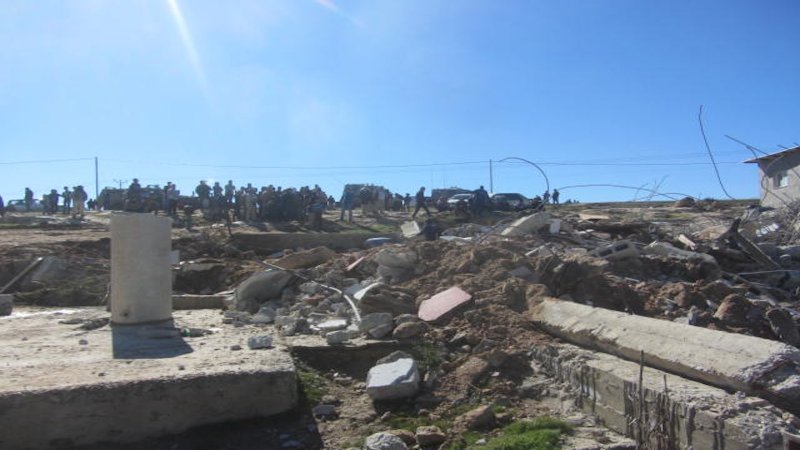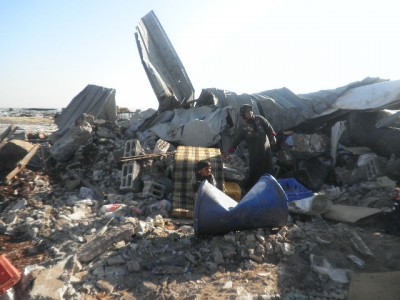Tag: House Demolition
-
Israeli forces detain a child and destroy four structures in the South Hebron Hills
21st January 2015 | Operation Dove | South Hebron Hills, Occupied Palestine On January 20th, Israeli forces detained a Palestinian child near the village of Maghayir Al Abeed and demolished four structures in the Palestinian village of Ar-Rifa’iyya in the South Hebron Hills area. At about 9.00 a.m. Israeli bulldozers started to tear down two houses and two…
-
Palestinian family’s agricultural building demolished by Israeli forces in Hebron
6th January 2015 | International Solidarity Movement, Khalil team | Hebron, Occupied Palestine On Monday morning in al-Khalil (Hebron), Israeli forces destroyed the building the Jaabari family used to house their farm animals. They appeared at 9:00 AM, armed with a bulldozer which tore up the ground and reduced the sturdy structure, used to house seventy sheep and thirty calves,…
-
Home demolition orders issued in Qalqilya
24th November 2014 | International Solidarity Movement, Nablus Team | Hajja, Occupied Palestine On Monday November 17th, the Israeli occupation army invaded the village of Hajja, in the Qalqilya district and issued five home demolition orders. The village of Hajja includes land that is officially considered Area C, as well as Area B, but the village…



